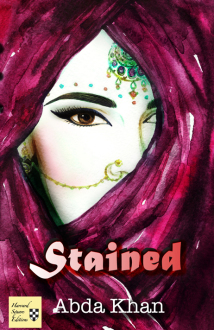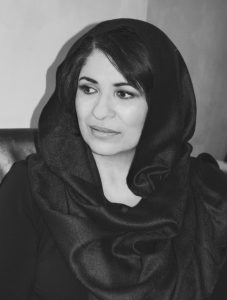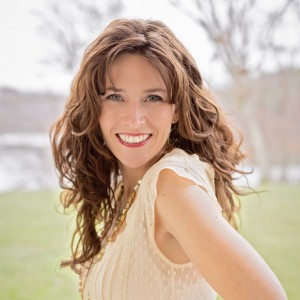Q&A with Abda Khan
Abda Khan was born in inner city Bradford, England. She was the seventh of eight children to Pakistani immigrant parents, and the first of their children to be born in the UK. She is an attorney, who after working as a Solicitor for a criminal law firm, set up her own law practice after she moved to Birmingham. She continues to live in the UK with her husband and children.
STAINED (Harvard Square Editions, October 2016) is the story of a sexually abused girl; ultimately, the story is of her strength and growth as a survivor. The community described in the novel is similar to the very deprived, very working class, multi-cultural inner city one in which Abda grew up, and continues to work.
Thank you for joining us, Abda, and for your courageous and important work.
 The story follows young Selina Hussain, a British-born Pakistani who is eager to attend university after she passes her graduating exams. Selina isn’t very interested in marriage or dating anyone for the time being. All she wants is to attend university, but she’s nervous about her upcoming Economics exam. She fears that a bad performance in this may prevent her from obtaining the perfect marks in all her subjects which she needs to be accepted onto the Law degree.
The story follows young Selina Hussain, a British-born Pakistani who is eager to attend university after she passes her graduating exams. Selina isn’t very interested in marriage or dating anyone for the time being. All she wants is to attend university, but she’s nervous about her upcoming Economics exam. She fears that a bad performance in this may prevent her from obtaining the perfect marks in all her subjects which she needs to be accepted onto the Law degree.
It is then that a trusted family friend, Zubair Qureshi, offers to tutor Selina to help her to pass her exam. Zubair is like an uncle to Selina. He is a trusted member of the community with much privilege, wealth, and is considered to be a moral and upstanding citizen. But underneath the glossy veneer lies a predator. Selina is unsuspecting and trusting, which Zubair exploits to sexually assault her.
With the threat of dishonour to her family at her back, Selina goes to extreme lengths to avoid scandal, and prevent shame being brought to her widowed mother’s door. It will take all the strength and courage Selina can muster when her life travels down a dangerous path, from which there may be no return…
Let’s start from the beginning, your beginning.
Where did you grow up? How did it impact the woman you’ve become?
I grew up in a large family in a working class, culturally diverse area. It was a very close-knit community, and people always looked out for one another. My memories of early childhood include playing outdoors a lot – hopscotch, skipping, and tag – and also spending most of my summer holidays and weekends in the allotment where my mum grew her own fruit and vegetables. Here, I would help with the watering, digging, and sowing, and in between I would daydream whilst I sat on my swing which my dad had put up for me.
My mother instilled in me the need for an education – sadly she passed away suddenly, when I was only eighteen years old, half way through my ‘A’ levels, and she never got to see me go on to university. I’m sure she would have been proud. But losing my mother at such a vulnerable age meant that instead of fretting about regular teenage stuff, I had to grow up fast, and deal with the tremendous loss of the person I loved and relied on most in the world.
It felt as though every bit of security that I had ever known had been swept from right under me. This undeniably shaped the person I became. I learnt to be strong, and try and keep going, however difficult life became.
Favorite flower?
Marigold.
Favorite spice?
Panch puran (a Pakistani/Indian five spice mix – sorry, it’s hard to choose one!)
Favorite color?
Dusky pink
What has your journey to publishing looked like?
It has been a little unconventional. I am a lawyer by profession, but I decided to start writing a few years ago. I did not manage to secure an agent or publisher in the UK (some were nice rejections, but rejections all the same). I was fortunate that Harvard Square Editions in the USA were very interested and decided to publish the novel. After the necessary editing process, the book was ready for publication.
Why was it important to you to tell the story of STAINED? How was it inspired by your own life experience?
Through my work, and personal experiences, I have come across some very heartbreaking real life stories of women who have had to contend with the issues that the novel deals with, and it occurred to me that whilst we live in a very diverse country, UK fiction certainly does not give any voice to such women. I feel there are so many stories out there that should to be told, and by writing Stained I wanted not only for the reader to become engrossed with the plot and its characters, but ultimately to think about some of those issues.
STAINED was your first novel. Will there be others?
Yes, definitely! I am already writing my next novel. I also write short stories. I have been shortlisted in three short story contests this year, the latest one being the Wells Festival of Literature.
STAINED spoke to the sexual assault and rape culture too often present in the South Asian communities. Do you see improvement happening? What can be done? What methods of progress are the most effective?
I think the main issue that separates rape and sexual assault in the South Asian communities from other communities is so-called ‘honour’. It has nothing to do with religion, as it is firmly rooted in long standing cultural beliefs. None of the women I have come across who have been raped have ever reported it to the police. Many have never told anyone else. Others have told their family and been made to feel like they are at fault.
The main reason they keep quiet is because they are made to feel that if people find out it will tarnish the family honour. And sometimes when the girl or woman is brave enough to tell her family, they blame her! The problem in these situations is that the woman perceives that there is a total lack of support for her, and she has nowhere to go and no one to turn to. However, we need to spread the word that there is support out there, at least outside of the family and community.
I went on a television show recently to convey this exact message. Even if the woman does not want to go to the police, there are sexual assault referral centres and victim support organizations where they can seek help and it will be completely confidential. Through these organisations they can also access medical help, and counselling.
Certainly in the UK, forensic evidence can be stored for years in case the victim changes her mind and decides to prosecute at some time in the future. This still leaves the problem of the ‘honour’ issues and lack of support within the family and community. I think may be matters here are improving, although it is such slow progress that it’s barely noticeable.
But the approach has to be multi-faceted; more information in mosques and temples (this is very important as we need people to see that so-called ‘honour’ has nothing to do with religion), more education for parents as well as children, more awareness through the media and other platforms like fiction, all in an attempt to try and change people’s mindsets.
The protagonist of STAINED, Selina, and her mother have differing viewpoints. Is it possible for a culture to change from the children up or must the enlightenment begin with the cultural and family leadership?
It would be great if it could be changed from top down – but many elderly people are so set in their ways, this does feel like an uphill struggle. And this mentality is not just confined to the elderly, even some younger parents in their forties and fifties still think in this way. It is a tough challenge, but one that we must persevere with.
What are the biggest issues you see facing young girls in areas like Bradford? What can be done?
A lot is expected of these young South Asian girls, not just in Bradford, but everywhere; they are expected to be obedient, well behaved, polite, modest and above all have total regard at all times for the family’s honour, and not take any steps that may stain that honour. In stark contrast, parents and elders often do not expect the same of the boys. Whatever mischief the boys may get up to, they are never deemed to have dishonoured the family. This heavy burden is placed solely on the shoulders of the girls and women. It is very unfair.
What do you hope readers take away from your work?
I hope that for the reader the story proves to be compelling and memorable.
 And finally…
And finally…
Film or Television?
Film
Rugby, Cricket, or Football (soccer)?
Cricket
Email or Text?
Newspaper paper or Newspaper website?
Newspaper website
Welcome, Abda, into the WWWB family. We will be supporting you forever more.
PRAISE –
“Khan has written a contemporary Tess of the D’Urbervilles, a heart-wrenching and engrossing tale that challenges the definition of morality through the story of a wronged young woman fighting to come to terms with harsh realities and finding empowerment along the way.”
— Booklist, Caitlin Brown
“Selina is an engaging central character, a focused and tenacious young woman who refuses to be broken by her traumatic experience and ultimately determines to shape her future herself. Through the compelling plot and carefully structured narrative, Khan gives voice to women whose stories are rarely heard and raises a series of complex and challenging cultural, social and moral questions.”
YORKSHIRE POST, UK
“Stories like Stained are an important aspect of the ongoing conversations around sexual assault and rape culture. It’s clear that author Abda Khan cares deeply about this issue and wanted to explore it with the respect and nuance it deserves. What I enjoyed most about this novel was how ultimately, the story was about Selina’s strength and growth as a survivor. This feminist message strengthens the story and provides an important perspective.”
READ DIVERSE BOOKS, USA
“Stained, draws readers in with the effortless combination of an intense storyline that is tinged with elements of the unexpected. Khan’s skillful characterization facilitates a relationship with the heroine, and allows the reader to become immersed in her world.”
ASIAN LITE NEWS, UK
“Khan’s characterisation and dramatic plot speak for women who currently do not have a voice at all, and expose the traumatic abuse faced by women in many cultures.”
SOUTH ASIAN POST, CANADA
“Stained examines the pressures of cultural taboos and sensitivities faced by women in society, and how they affect their life profoundly. Ultimately, it explores human endurance in the face of extreme adversity, and the extent to which, eventually, one is left with nothing but hope. The plot and characters draw the reader in from the very first page. Abda Khan has skilfully produced a novel that is both compelling and thought-provoking. A thoroughly captivating book.”
JULIAN KNIGHT, Member of the British Parliament, Author & former BBC Journalist
“A real page turner — shocking in so many ways but so very real, I was so pleased that it had such a feminist stance…so good to hear that take on life.”
MARY DOWSON, Director and Founder of BCB Radio, UK
“There’s a lot to be learned from such characters as Selina. More, though–her story was of finding herself DESPITE the path life set her on.
The prose throughout was melodic and, though dark at points, maintained a poetic beauty I admire. Though this is first person narrative from Selina’s perspective, I feel Abda Khan painted the rest of the characters in ways that made them live and breathe from the pages…this book touched me deeply…ly”
BETWIXT THE PAGES, Review
“Abda Khan is a fresh voice in British-Asian literature. Stained is fast-paced and enjoyable. Selina, the main character in Stained, is deep and impressive.”
RAAVI MAGAZINE
“It’s a very well-written book, engaging and definitely recommendable. Riveting descriptions bring the story to life, especially in the most emotive passages…definitely a page turned that will keep you hooked”.
EASTERN EYE NEWSPAPER, UK
“Loaded with painful lessons from the contemporary immigrant experience”
–THE WEEKLY VOICE, CANADA
STAINED is available –
Other ways to bond with Abda Khan–
Interviewed by –

MM Finck
MM Finck is a writer and freelance essayist, and book reviewer. She oversees WWWB’s Interviews and Agents’ Corner segments. Her women’s fiction is represented by Katie Shea Boutillier of the Donald Maass Literary Agency. She is a member of the Women’s Fiction Writers Association and the contest chair for the Women’s Fiction Writers Association 2016 Rising Star Contest for unpublished authors.
Her work has appeared in national and regional publications. When she isn’t editing her novel, #LOVEIN140, you can find her belting out Broadway tunes (off key and with the wrong words), cheering herself hoarse over a soccer match (USWNT!), learning to play piano (truly pitifully), building or fixing household things, and trying to squeeze more than twenty-four hours out of every day.
She is active on Facebook, Twitter, Goodreads, and Litsy (@MMF). http://www.mmfinck.com
Category: Contemporary Women Writers, Interviews































Perhaps UK fiction does not give voice to the situations you describe because people tend to write what they know – it’s up to those who know about such things to write about them, and publish in any way they can. Traditional publishers tend to publish what they know will sell, which is usually pulp romantic fiction.